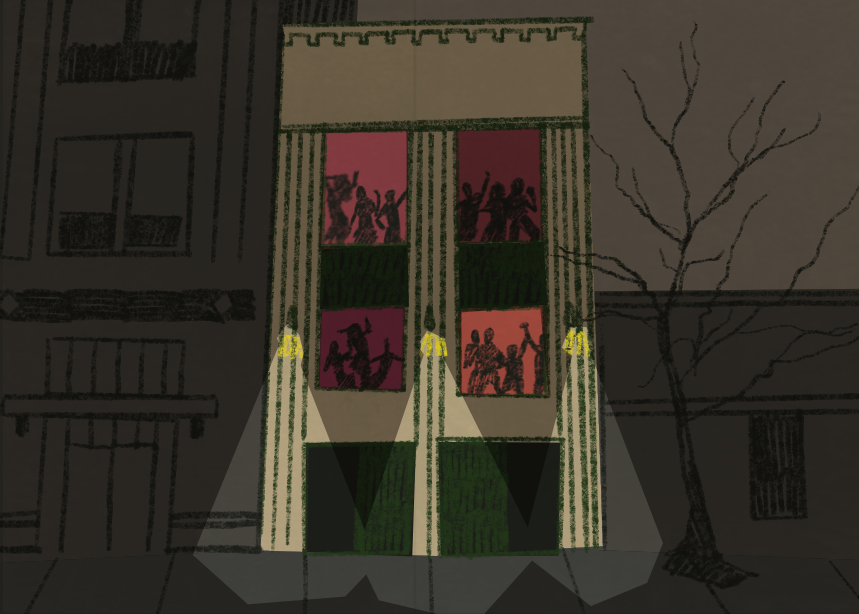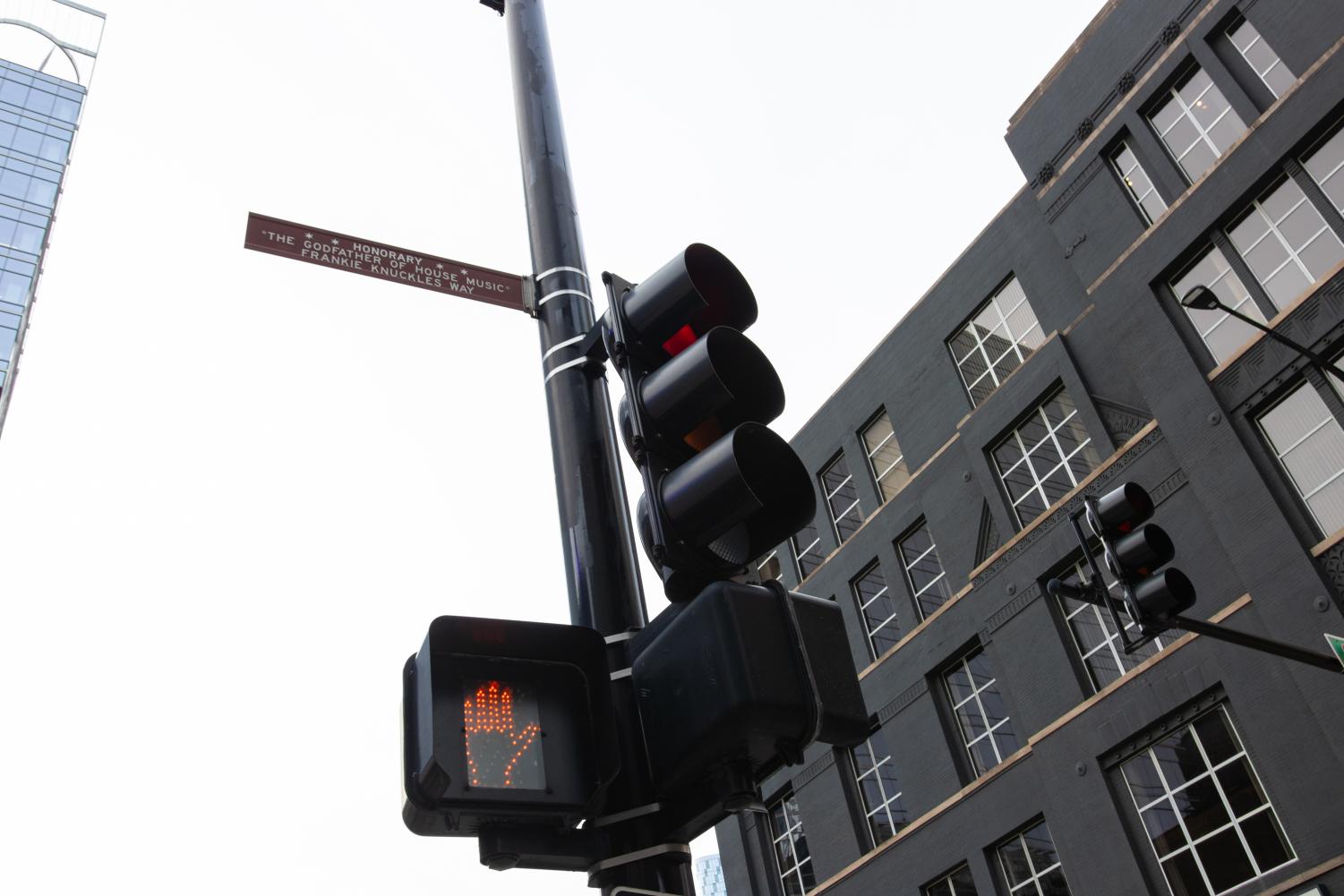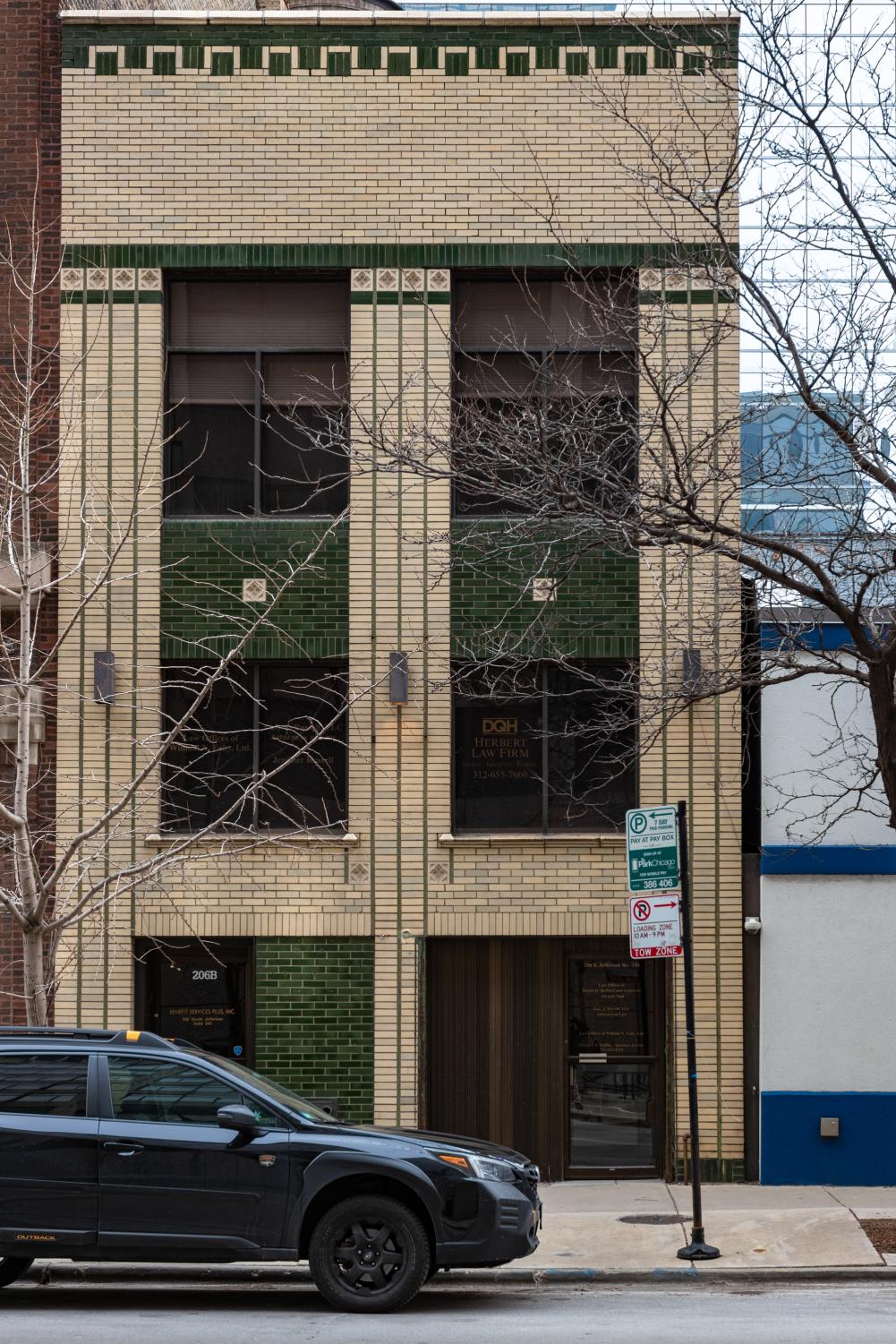House music’s birthplace in Chicago’s West Loop at risk of demolition
March 31, 2023

The Warehouse, an iconic nightclub that opened its doors in 1977 in Chicago’s West Loop, is considered the birthplace of house music. Under direction from Robert Williams and DJ Frankie Knuckles, the Warehouse was a place for the city’s Black gay community to dance freely and create music in a vibrant environment.
There is now an effort underway to protect the building amid new ownership and concern in the community about risk of demolition. A petition to “save the Warehouse” currently has over 12,000 signatures.
“It’s important that we recognize spaces and places that were momentous in establishing the movement and the culture,” said Frederick Dunson, the founder and executive director of the Frankie Knuckles Foundation. Knuckles — DJ, record producer and Grammy Award-winning remixer — worked with Dunson in the original Warehouse scene, Dunson later becoming his manager and partner.
“It was mecca for us, us being marginalized people of color… We found ourselves and who we were and what we were,” Dunson said.
Iconic building added to endangered list
This year’s list of endangered buildings — a list created by nonprofit advocacy organization Preservation Chicago — includes seven buildings. Now in its 20th year, the list was created to bring attention to historic architecture and protect buildings from demolitions. One of the buildings is at 206 S. Jefferson St., historically known as the Warehouse.
The city has made it clear that the Warehouse is a place of great historical impact; the stretch of Jefferson Street that the building resides on was, in 2004, given the honorary name “The Godfather of House Music” Frankie Knuckles Way.

This 1910s building was bought by nightlife organizer Robert Williams in 1975 and went on to become a landmark for music history as Frankie Knuckles and Chicago’s Black LGBTQ+ community gave the new genre a name — shortening from “Warehouse music” to “house music” over time.
The Preservation Chicago release highlights the Warehouse’s broad historical value.
“Outside of the Warehouse’s important place in music history, it is also a notable site of Black and LGBTQ+ history, a significant heritage whose commemoration is often overlooked within the built environment,” according to a release.
Police defense lawyers buy building in December
Documents from the Cook County Clerk’s office show the old nightclub was bought through an LLC by law partners Shneur Nathan and Avi Kamionski, two attorneys who have made millions defending police officers in wrongful conviction lawsuits in Baltimore, Maryland.
Their practice, Nathan & Kamionski LLP, lists police, employment and commercial litigation as its first three areas of practice. Alongside wrongful convictions, their firm handles cases involving wrongful coerced confessions, police shootings and due process violations.
Nathan and Kamionski have earned some $7.3 million since 2019 from these kinds of cases, according to documents obtained by Baltimore newspaper The Daily Record.
The partners signed as the managing members of NK Prop Co Holdings LLC on the mortgage document dated Dec. 12, 2022, which notes an amount for the purchase at $1.5 million. The Cook County property transaction lists the sale at $950,000.
While the July 2022 listing for the building acknowledged it as the “birthplace of house music,” that does not secure its safety; the listing also noted full redevelopment permission within the lease. The West Loop area has seen “a wave” of industrial architecture demolishing over the recent years, said Preservation Chicago.
“The planning department [is] all about redeveloping the West Loop, they want it,” said Timothy Wittman, an adjunct instructor in the Art and Art History Department. Wittman spent 12 years working for the Commission for Chicago Landmarks, writing the 1995 Chicago Historic Resources Survey that identified over 17,000 buildings with historic or architectural importance.
The Historic Preservation Division — the staff that create proposals for the CCL — currently resides within the city’s Planning and Development Department, but it was an independent agency when Wittman worked there. “You have to worry about, do the developers have the upper hand,” he said. “And because the planning department is in the pocket of the developers, you gotta be real forceful [with preservation attempts].”
Warehouse legacy ‘must be protected’

“There’s so many places in the world like France, Tokyo… that have dedicated establishments in honor of Chicago, specifically Chicago house music,” said Antonio Robles Levine. Levine is a Chicago-native DJ and producer, nominated for “Best House Music DJ” in the Chicago Reader’s 2022 “Best of Chicago” listing.
He said that while internationally Chicago gets the praise and respect for its influence on music history and culture, “the dichotomy is that, when we get to the ground zero, the city doesn’t.”
Wittman said the landmarking case for 2120 S. Michigan Ave., better known as the home to Chess Records, sets relevant precedent for the Warehouse case. The building where countless iconic blues records were produced — from musicians like Chuck Berry and Muddy Waters — was designated a landmark for its musical historic value in 1990.
“Time is of the essence,” Levine said. “But there’s been a lot of support from a lot of the younger generation to protect these buildings.”
For more on house music history and the legends behind it, listen to Micah Salkind’s collection of “oral history” interviews, all a part of “Chicago House Music Oral History Project” that is featured in Columbia’s Center for Black Music Research, and watch Channel 4’s documentary “I Was There When House Music Took Over the World.”







